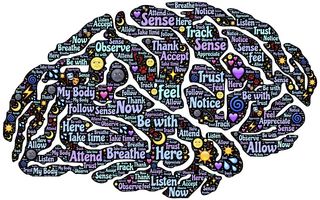Emotion Regulation
Mindful Emotion Regulation
The path away from procrastination
Posted April 1, 2016

I’m often asked if people can overcome procrastination? My answer is yes, but it’s a bit misleading, because I think many people think that they will simply change and needless delay won’t be an issue in their lives anymore. It’s not that simple.
We can overcome procrastination, but it takes practice. The practice required is related to emotion regulation. Although emotions are clearly adaptive in many ways such as facilitating rapid decision making, poorly regulated emotions get in the way of our functioning and have been shown to be related to negative consequences physiologically and psychologically. To obtain and/or maintain optimal functioning we need strategies to manage our emotions. I and many other colleagues argue that mindfulness is the best route to this emotion regulation.
There is a great deal written on mindfulness, so I won’t expound on every aspect of mindfulness meditation in this blog post. My focus is on mindfulness meditation (MM) and emotion regulation (ER), and I want to make one key point. With MM training or practice (even a little practice has been shown to make a difference), we become more able to allow disturbing emotions and thoughts to pass through awareness. We develop the ability to NOT act or react to every emotion or thought we have. This is crucial when it comes to reducing procrastination.
When we procrastinate, we are putting off a task or activity to a future time. Typically, we put off tasks we find aversive. Tasks that evoke negative emotions in us such as boredom, frustration, fear, anxiety, etc. Procrastination serves as a coping mechanism to escape these emotions. If we put off the task, we escape the emotions, at least for now. Of course, this is a maladaptive coping strategy, because usually the task doesn’t go away; it just gets postponed – along with the original negative emotions associated with it and a good dose of time pressure, and even guilt, later on.
The alternative to procrastinating to escape these emotions and a more effective emotion regulation method is not to engage with the emotions when they occur. This is the purpose of mindfulness meditation and what we learn through practice.
As Richard Chambers and his colleagues conclude in a review of this topic,
“Mindful emotion regulation represents the capacity to remain mindfully aware at all times, irrespective of the apparent valence or magnitude of any emotion that is experienced. It does not entail suppression of the emotional experience, nor any specific attempts to reappraise or alter it in any way. Instead, MM involves a systematic retraining of awareness and nonreactivity, leading to defusion from whatever is experienced, and allowing the individual to more consciously choose those thoughts, emotions and sensations they will identify with, rather than habitually reacting to them. In this way, it erodes the automatic process of appraisal that gives rise to disturbing emotions in the first place” (p. 569, emphasis added).
Of course, when we erode these habits of mind that give rise to disturbing emotions, we don’t need to procrastinate. We simply move forward with the task at hand. To put this another way, as one of my favorite educators, Parker Palmer, has – I can have emotions, I don’t need to be these emotions.
If you want to learn more about defusion, emotion regulation and related therapies, listen to this podcast about Acceptance and Commitment Therapy. The only thing you’ve got to lose is your procrastination.
References
Chambers, R., Gullone, E., & Allen, N.B. (2009). Mindful emotion regulation: An integrative review. Clinical Psychology Review, 29, 560-572.
Gagnon, J., Dionne, F., & Pychyl, T.A. (in press). Committed Action: An initial study on its role in the prediction of academic procrastination. Journal of Contextual Behavioral Science.
Pychyl, T.A., & Sirois, F.M. (in press). Procrastination, emotion regulation & well‐being. In F.M. Sirois & T.A. Pychyl (Eds.), Procrastination, Health and Well-Being. New York: Elsevier.


